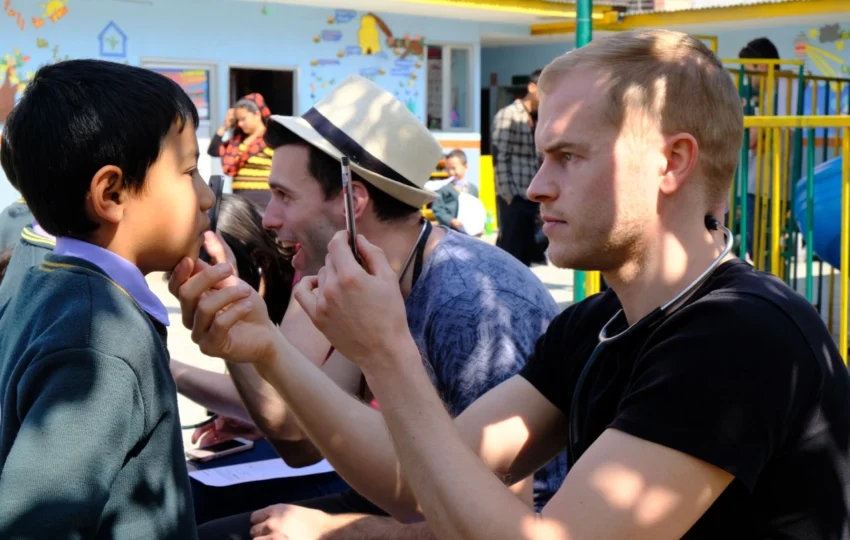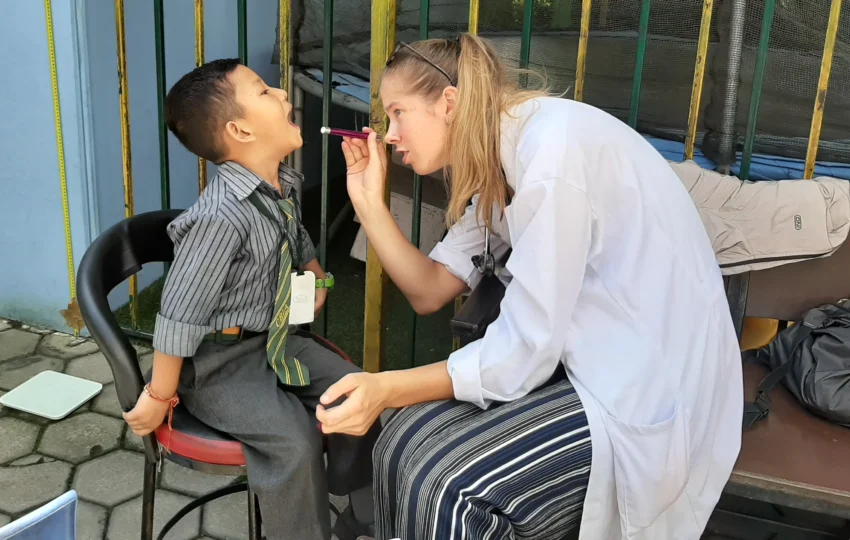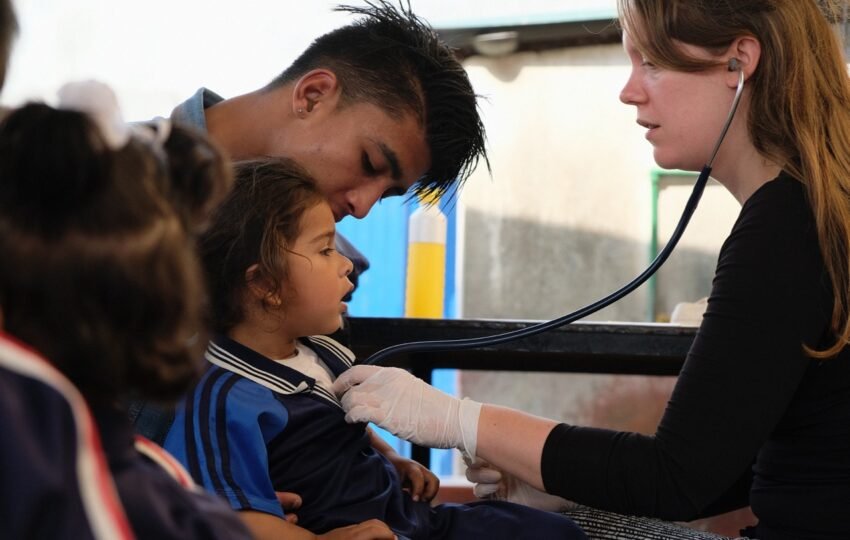Volunteer Society Nepal (VSN) is playing an active role in linking rural Nepali people with experienced medical and health personnel from both Nepal and around the world. The Volunteer Society Nepal (VSN)'s Healthcare Volunteering Program in Nepal mobilizes volunteers experienced in medical and health areas, to rural places where the government is unable to provide a formal health institution. Many rural Nepali people are often reluctant to go to the hospital and other modern health services because of orthodox thinking, superstition, and other cultural influences. Some Nepali people may visit faith-healer or witch doctors when they suffer from illness, so they sometimes die as a result of avoiding modern medications. By living and working with rural communities, Health Program volunteers also increase the exposure of rural Nepali people to modern medicine.
Though Nepal has made rapid strides at improving the healthcare of the country, the system is still short of desirable. In remote and poorer areas, many people have no access to healthcare and those with access receive substandard treatment. Unfortunately, there is an extreme lack of doctors, nurses, and medical facilities and as a result, Nepal has one of the lowest life expectancy rates. In addition, many people suffer from preventable and treatable diseases. If you are a medically trained professional or a student, volunteer in the medical/healthcare project in Nepal and provide proper treatment to locals, drastically changing their lives for the better. This is the perfect project to gain international and professional experience while providing you and those you help with an enriching, productive, and meaningful experience.
In this program, trained and experienced health volunteers will be assigned to work in Health Post/ Health Clinic/ Hospital/ Polyclinics either being run by the government or a local community, in rural or urban settings. The placement of volunteers in these health institutions will increase the capacity of Nepali health workers to provide better medical facilities when doctors and experienced medical personnel are not available. Those health workers in rural areas have very little knowledge of the healthcare system. Health Care Volunteers will work for 5-6 hours each day, 6 days a week. But, the volunteers who want to work in urban areas will be working with medical doctors and those doctors have better knowledge and skill about health care and they also have good English language skills.
Volunteer Society Nepal (VSN) encourages all interested experienced medical and health personnel, including students, professionals, organizations, associations, and other groups to join the Health Program and make a lasting contribution toward supporting needy Nepali people
Each volunteer in Nepal working on the community health/medical project will have varying responsibilities and tasks and volunteer projects will depend on one’s qualifications and certifications as a medical professional. Duties may include:
- Helping with a routine check-up
- Assisting in the lab
- Carry health check-up programs at local schools, orphanages, women’s groups, disabled centers, and community groups
- Providing basic first aid and care
- Shadowing health workers, therapists, nurses, or doctors
- Working with organization administrations
- Helping in the pharmacy
- Recording patient details
- Measuring vital signs such as blood pressure, height, weight
- Distributing medicines
- Assisting with medical procedures
- Helping incoming patients
- Performing and assist in the in-day emergency room
- Partnering with local doctors
- Qualified doctors can diagnose and treat patients
- Organize health care related training for local health workers
- Carry out health care and sanitation awareness in the local schools
- Get involved in working with the youth clubs, women’s groups, and other local organizations, teaching them about proper health and sanitation.
- Conduct First-Aid training to the local people in rural villages, thereby providing them with a practical and sustainable life-skill.
- Conduct First Aid courses to children in schools, lasting from several days to a week in duration.
- Trained and experienced health volunteers may organize health camps in rural areas where there is no health facility at all for between two and five days. Health Volunteers will work alongside their Nepali counterparts to examine patients, distribute medicine and consult with communities about sanitation and health care.






